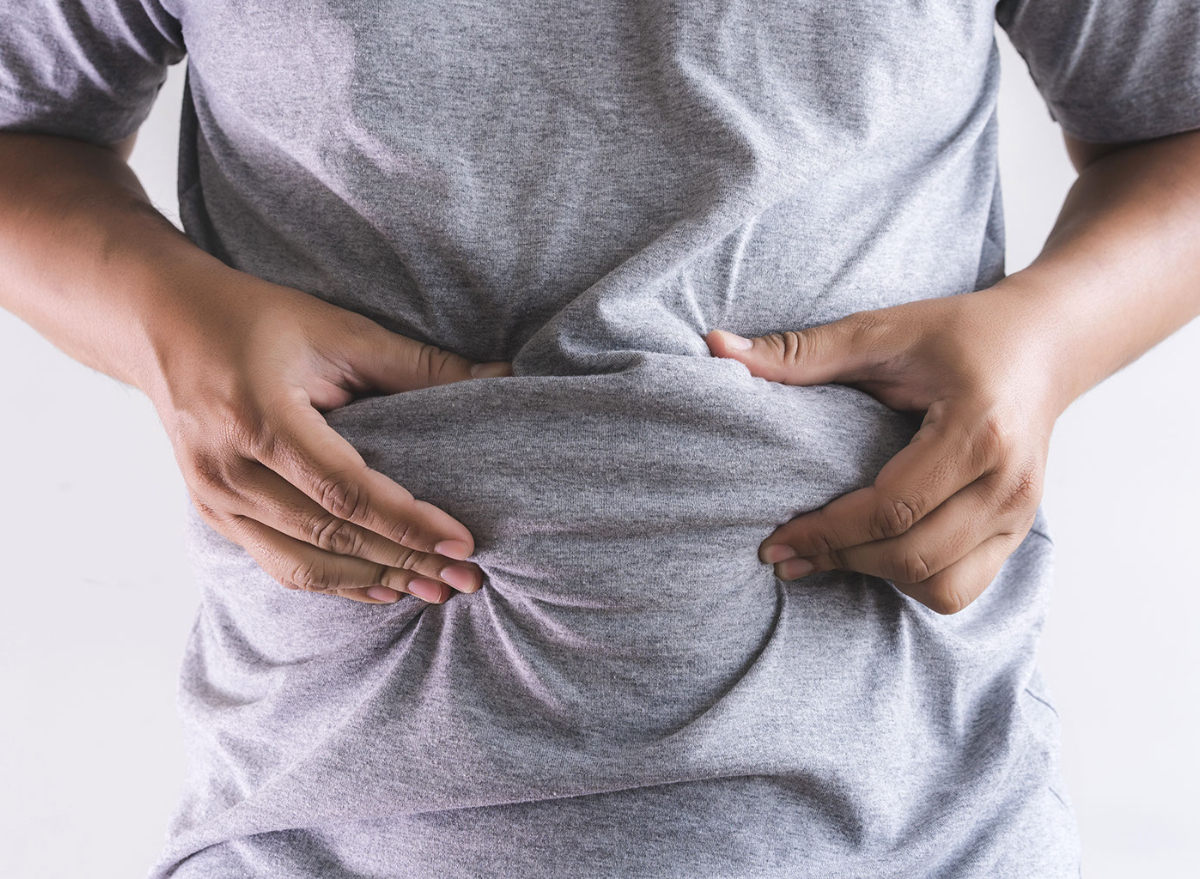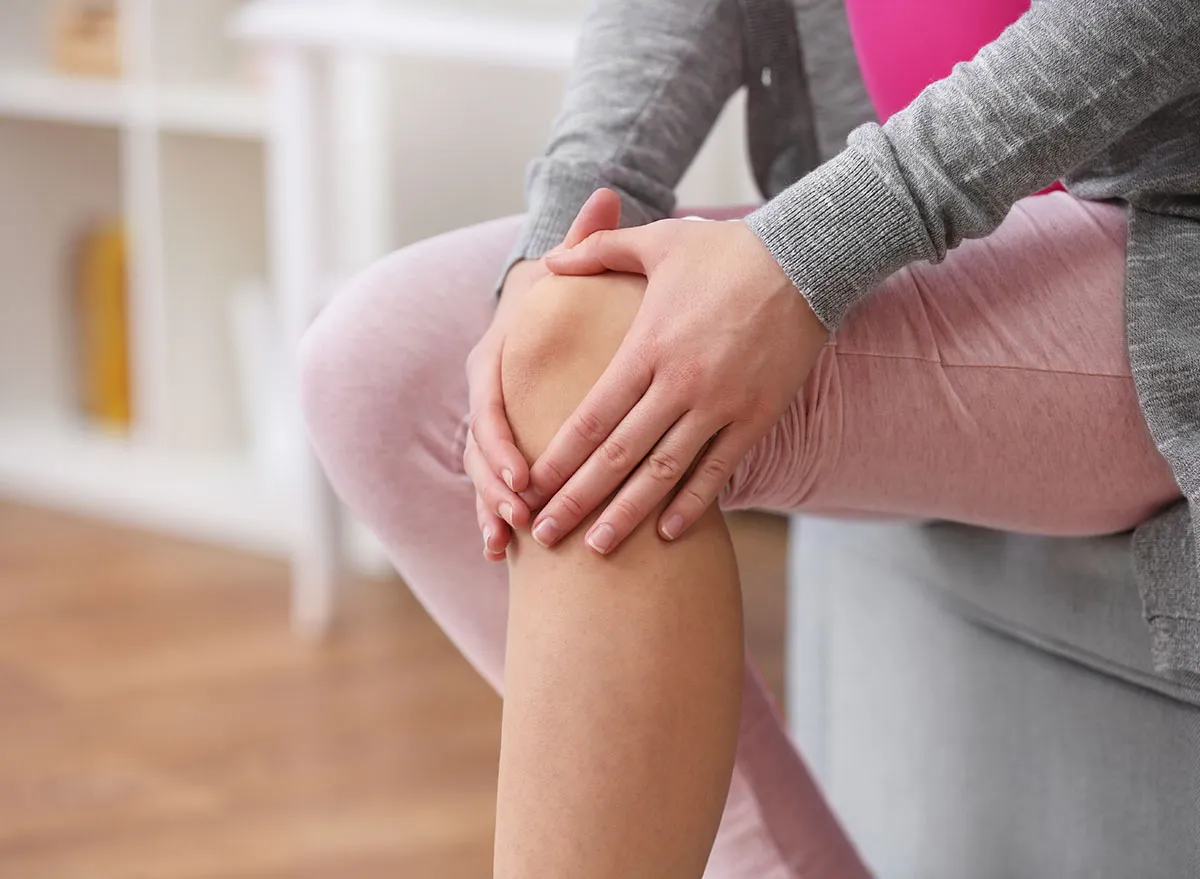Side Effects of Losing 20+ Pounds After 50, Says Dietitian

As you age, it becomes harder and harder to lose weight or maintain your desired weight. According to AARP, the two most common reason that people tend to gain weight in their 50s is loss of muscle mass and a decline in their daily physical activity.
In order to help you lose weight in your 50s, the AARP suggests making sure you have enough protein on a daily basis, getting enough good-quality sleep, and not just exercising but specifically lifting weights at least twice a week.
To understand more about the possible side effects and health benefits of losing 20+ pounds in your 50s, we spoke with expert Courtney D'Angelo, MS, RD, author at GoWellness.
Continue reading to learn what she had to say, and for more tips on healthy aging, make sure to check out 4 Nutrients You Need More of After 50.
But first, be aware of this potential danger

Although weight loss can improve the overall lifestyle and health of most people in their 50s, it's important to be aware of some potential dangers with losing weight, especially if it's unplanned or unnecessary.
According to Current Obesity Reports, too much unwanted weight loss can lead to the loss of muscle mass and muscle quality. This can not only lead to more pain as you age but has also been known to lead to an increased risk of hip fracture or injury.
Before you decide to lose weight, talk with your doctor about the best plan of action and if it's even necessary at all.
May improve your mobility

When you carry extra weight into your 50s, 60s, and 70s, it can greatly affect the way you move through your life.
"Carrying even an extra 20 pounds in your 50s can make regular exercise activities like walking feel really difficult, so losing that weight can help increase your flexibility with anything from bending down to lifting heavy items," says D'Angelo, "and better flexibility boosts oxygen levels and helps deliver necessary nutrients to your muscles."
May reduce health risks

Obesity can, unfortunately, lead to many different health problems as you age, and the health risks can increase even more in your 50s.
"Losing 20 pounds, even if it's as little as 5-10% of your body weight, can reduce obesity-related risks," says D'Angelo, "and not only that, but losing 20 pounds can also help your overall quality of life, increase your mood, improve your lung function, and reduce blood sugar levels."
More research still needs to be done on this topic, but studies are now showing that there may be a connection between obesity later in life and a decrease in brain health.
A study from Cambridge University found that being overweight in your 50s may age your brain by up to 10 years, although they're still looking into why this occurs.
You may have less joint pain

Losing weight when you don't need to in your 50s can lead to accelerated loss of muscle mass as we mentioned earlier, but weight loss can also be helpful for your joints and muscles if you've been carrying around excess weight for a while.
"When we are overweight, shedding some pounds in a healthy way can feel like a weight has been lifted off of your knees, resulting in less stress in the joints and potentially easing symptoms for those who have osteoarthritis," says D'Angelo.
It's important to talk with a doctor or registered dietitian when deciding if you may benefit from losing weight in order to ensure that it's necessary and is being done in a healthy way.
Read these next:








